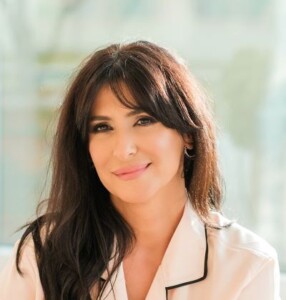It has never been discussed more about “healthy eating”, while we know less, but we have various beliefs and theories, even scientific ones. This is what it means to live in the world of “superinformation” and marketing, put together.

Iva Tiço
Raise your hand if you’ve never posted a single photo of food on social media!
You are certainly not from this planet, where everything before being enjoyed, it is photographed and then shared with others. Eating and talking about food has always been a very popular topic, but it has become the main topic especially in the AQ period, “After Quarantine”, when humanity is wandering between the school he did as a chef while he was forced to live within four walls and the discussion on “how to get rid of excess fat”, which is owed to staying at home and walking back and forth from the oven to the refrigerator.
The words “nutritionist”, “food blogger”, or “food guru” have never been more fashionable than today. Marketing agencies claim that a big share of the budgets of food companies and industries that revolve around the kitchen, now goes online and not to the traditional media, and it gets divided between “influencers”, girls and women, professional or not, who cook, photograph and post pictures of dishes and write recipes. Very few of them use the term “advertising”: most pass it on as advice to their followers. The better the marketing skills of the influencer, the more secretive the advertisement. Real nutritionists and food bloggers are already wandering around the almost invisible boundaries between the two. They are also forced to share recipes, to keep followers stuck at their page. But sometimes they do not escape the temptation to have a piece of the “cake” of advertising, mainly through the introduction of “healthy” products within their advice. Obviously sponsored.
The followers are stuck in between. How do they know that a certain food is really healthy and another is “disguised” as healthy? How do they understand that being healthy does not necessarily mean not having a belly fat? How to distinguish a nutritionist from someone who has read some things on the internet, or has taken a course and today has his own business?! Instagram and social media in general have room for everyone and it is unlikely that in the near future there will be any selective filter, a certificate of reliability.
But we just have to hoist the antenna a little to understand it easily: If we are talking about a diet with regular meals, seasonal products, non-exclusions of a certain food or the soaring of a superfood, then we are dealing with an educated professional, whom we can trust. If we talk about keto, fasting, 7-day diet, caloric diet, detox and all those items that are summarized in a title like “How to lose x pounds in x days”, then we are dealing with diets, which are not always related to being “healthy”.
Sounds a bit complicated, right?! It has never been discussed more about “healthy eating”, while we know less, but we have various beliefs and theories, even scientific ones. This is what it means to live in the world of “superinformation” and marketing, put together. So the only way to survive is to listen to the body, read its signals and take to social media with little reservation: follow them to inspire and do as you know and as your grandmothers once taught you, who cooked wonderful dishes and lived healthy, without having avocados and quinoa in their kitchen and who had never heard of fasting.
Iva Tiço is a journalist for almost 25 years, author and translator, and for three years co-author of a food blog – rozmarina.al



Leave A Comment